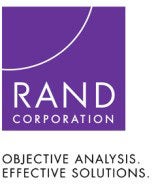Early Planning is one of Several Steps Crucial to Successful Summer Learning Programs


FOR IMMEDIATE RELEASE
Contacts:
RAND Corporation
Joe Dougherty
703.413.1100, x5137
jdougher@rand.org
www.rand.org
The Wallace Foundation
Nina Sonenberg
212.251.9750
nsonenberg@wallacefoundation.org
www.wallacefoundation.org
(August 13, 2013) The most important steps school districts can take to implement an effective summer learning program are to begin planning at least six months in advance and to include both district and summer site leaders in the process, according to a RAND Corporation study issued today.
RAND researchers examined six school districts in the study -- Boston, Cincinnati, Dallas, Duval County (Florida), Pittsburgh and Rochester, N.Y. These districts are among the few large urban districts offering voluntary, full-day programs for five to six weeks free of charge to large numbers of elementary students each summer.
The study, “Getting to Work on Summer Learning,” is the second in a series providing the most comprehensive research on summer learning to date, and is part of a five-year demonstration project funded by The Wallace Foundation to examine whether and how summer learning programs can stop summer learning loss and create achievement gains.
“Summer learning programs have the potential to close the achievement gap associated with the loss of educational skills during the summer months,” said Catherine Augustine, a study co-author and a senior policy researcher at RAND, a nonprofit research organization. “But these programs are often an afterthought or not offered at all, particularly when education budgets are tight. This research provides districts with guidance on how to create summer learning programs that could offer real benefits to struggling students.”
The first report in the series, “Making Summer Count” (2011), presented the research on summer learning loss and the promise of summer learning programs. It reported that the loss of knowledge and educational skills during the summer months is greater for low-income students, and the effects are cumulative, contributing to the achievement gap between low- income and upper-income students.
“Summer offers a critical chance for schools to provide disadvantaged students the academics and enrichment that will keep them on-track year-round,” said Ann Stone, senior research and evaluation officer at The Wallace Foundation. “This report captures field-tested lessons on how districts can do it well.”
Researchers used data from extensive surveys, interviews and observations to make a set of recommendations for school districts and community leaders to plan and develop effective summer learning programs, including:
- Planning should begin early and include both district and site-level staff. Roles should be clearly delineated among program leaders, external partners and summer site leaders.
- Organizers should use commercially available and tested curriculum, and standardize the curriculum across district sites. The curriculum should accommodate at least two ability levels, and teachers should provide instruction in small classes or groups.
- Administrators should recruit motivated teachers who possess the appropriate grade- level experience and give them sufficient training and ongoing support.
- A clear attendance policy should be established, with field trips and other incentives provided for students who attend. Also, disguising academics is not necessary to boost attendance.
- Programs should operate program for five to six weeks, with three to four hours a day for academics.
Because the cost of summer learning programs sometimes are a barrier to implementation, the researchers recommend school districts design programs with costs in mind. This includes hiring staff based on projected daily attendance rather than initial number of enrollees, and restricting the number of sites to control administrative expenses.
“The key is to start early,” said Jennifer Sloan McCombs, a report co-author and a RAND senior policy research. “Many of the problems districts face -- from weak teacher training to ineffective transportation -- can be traced to insufficient planning. Administrators should begin planning no later than January for summer learning programs in 2014.”
The next report, forthcoming in summer 2014, will present early findings from the randomized-controlled trial that started in five cities in summer 2013. It will describe the programs’ short-term effects on student achievement in reading and mathematics. Later reports will share long-term results from the study.
The full report is available at www.rand.org and at www.wallacefoundation.org.
RAND Education, a division of the RAND Corporation, is a leader in providing objective, high-quality research and analysis on all levels of education from early childhood through adult learning. Our work helps policymakers and practitioners around the world make educational policies, programs and practices more effective for all.
The Wallace Foundation is an independent, national foundation dedicated to supporting and sharing effective ideas and practices that expand learning and enrichment opportunities for all people. Its five current objectives are: strengthening education leadership to improve student achievement; helping selected cities make good afterschool time programs available to many more children; making the arts a part of many more people’s lives by working with arts organizations to broaden, deepen and diversify audiences; expanding arts learning opportunities for children and teens; and better understanding the impact of high-quality summer learning programs on disadvantaged children, and enriching and expanding the school day in ways that benefit students.
###
RAND Education, a division of the RAND Corporation, is a leader in providing objective, high-quality research and analysis on all levels of education from early childhood through adult learning. Our work helps policymakers and practitioners around the world make educational policies, programs and practices more effective for all. Learn more at www.rand.org.
Press contact: Joe Dougherty. 703.413.1100 x 5137. jdougher@rand.org
The Wallace Foundation is an independent, national foundation dedicated to supporting and sharing effective ideas and practices that expand learning and enrichment opportunities for disadvantaged children. Its five current objectives are: strengthening education leadership to improve student achievement; helping selected cities make good afterschool time programs available to many more children; making the arts a part of many more people’s lives by working with arts organizations to broaden, deepen and diversify audiences; expanding arts learning opportunities for children and teens; and better understanding the impact of high-quality summer learning programs on disadvantaged children, and enriching and expanding the school day in ways that benefit students.
Learn more at www.wallacefoundation.org.
Press contact: Nina Sonenberg. 212.251.9750. nsonenberg@wallacefoundation.org
